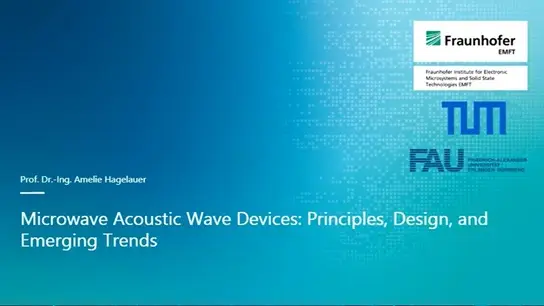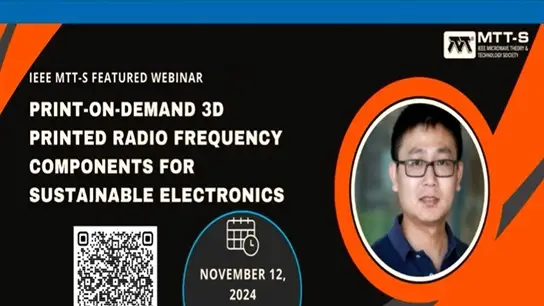-
Members: FreeMTT
IEEE Members: $9.00
Non-members: $14.00Length: 00:59:15
13 Jun 2017
Gallium Nitride (GaN) based transistor technology’ characteristics of very high current density combined with high voltage operation have held promise to vastly improve many microwave circuit applications that presently utilize Gallium Arsenide (GaAs) devices. Today, GaN transistors are capable of high voltage operation while simultaneously demonstrating FT & Fmax characteristics more typical of lower voltage GaAs PHEMT devices. The potential benefits of GaN device characteristics combined with monolithic microwave integrated circuit (MMIC) technology are many. Highly efficient switched modes of power amplifier operation should be possible at higher output power levels and frequency. High output impedance typical of transistors operated at three to five times the voltage of GaAs should facilitate lower loss matching networks due to the reduced transformation ratio. Alternately, transistor periphery and corresponding output power could be dramatically increased while maintaining impedance transformation ratios similar to that of existing GaAs PHEMT amplifiers. The higher output power density of GaN devices should lead to greatly reduced die size for GaN implementations of existing power amplifier functions. The improved heat flow realized by the high thermal conductivity Silicon Carbide (SiC) substrate material should allow for acceptable junction temperatures even with the much higher power dissipation. Very high power switches could be designed by using large control voltages and taking advantage of the high current capability (high Imax) of GaN. While the advantages of GaN are manifest, many of the features that make GaN transistors attractive can be shown to create significant issues that are typically not encountered with lower voltage technologies. In this talk, examples and scenarios are discussed highlighting the benefits and issues associated GaN MMIC technology.


